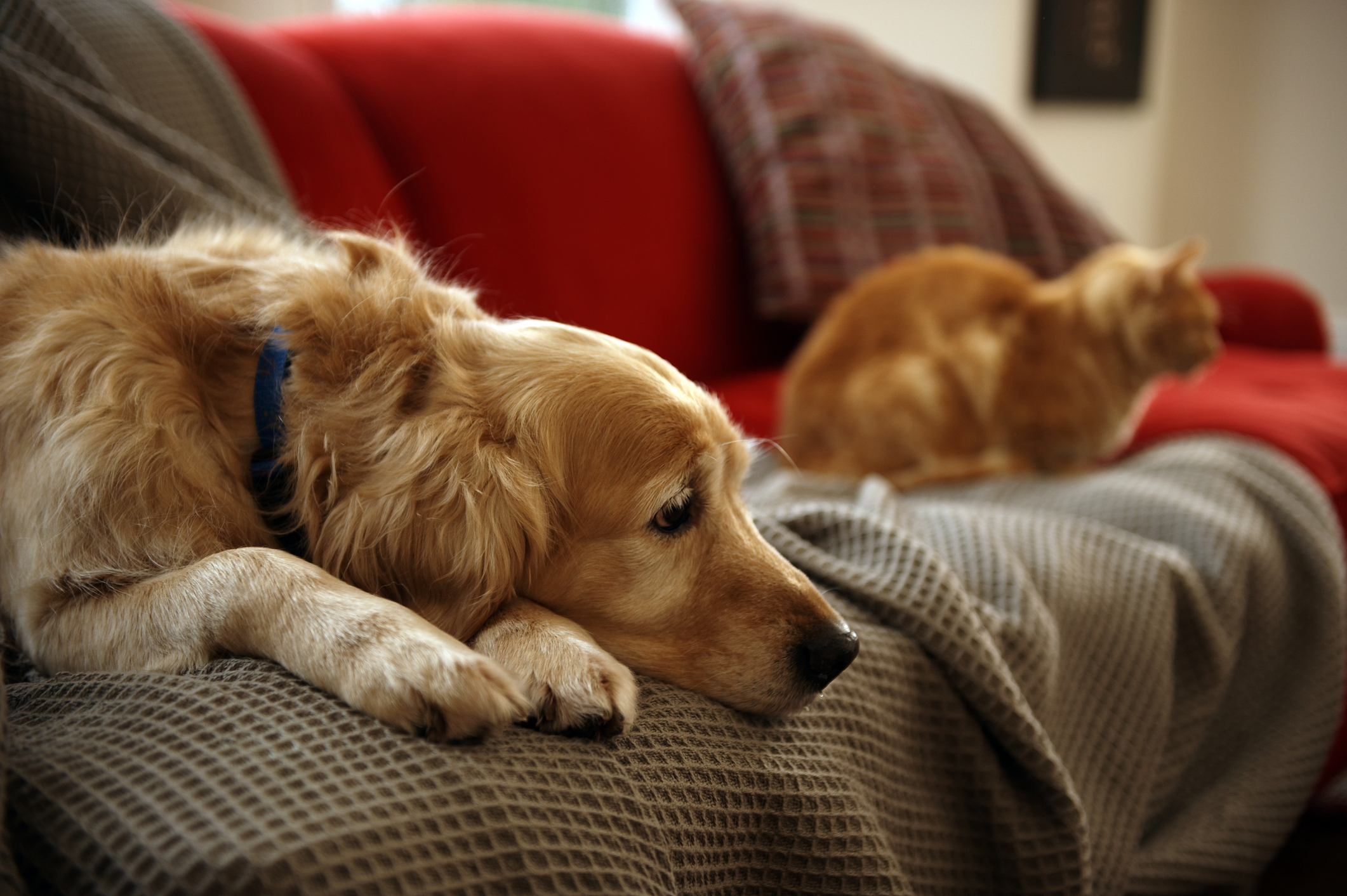Fireworks can be a cause of great stress and anxiety for our furry friends, so planning ahead of time the ways in which you will help your pet stay calm and relaxed during firework season, is crucial.
Some calming aids and measures may need prior introduction or training ahead of the festive period, when at-home fireworks displays can happen in your neighbourhood without prior warning, so preparedness is key.
We’ve put together some top tips to follow to help alleviate firework fears and make the season less stressful for all involved.
How can I keep my cat calm during fireworks?
Cats can become quite skittish if alarmed, so, for their own safety, keep them indoors and ensure that cat flaps etc are locked so they cannot escape outside and onto a road if spooked. For cats that spend most of their time outdoors, remember to plan with the availability of litter trays.
It is also important to monitor your cat is passing urine and faeces as normal in these circumstances, as keeping outdoor cats indoors more often than they’re used to, can cause them further stress.
Calming pheromone diffusers and sprays can also be used to alleviate your cat’s fireworks nerves. These pheromone sprays and diffusers release a calming pheromone to help relax and calm your cat, they should be used in an area they spend most time in and away from radiators. Sprays can also be used on bedding or scratching towers where they spend their time.
My cat wants to hide during fireworks; how can I help them feel more comfortable?
Fireworks can disorientate and frighten our feline friends, and it’s quite normal for them to seek refuge under furniture or in quiet enclosed spaces in the home. Make sure to give your cat plenty of hiding spots; place cardboard boxes with a blanket in around quiet areas of your home. If they prefer to hide under the bed for example, leave them be.
Trying to control where they hide will cause more stress, so do not confine them to one room - allow them to choose where they feel the safest. Keep windows and curtains closed once the sun has set, and ensure your pet is microchipped with details up to date, just in case.
How can I keep my dog calm during fireworks?
Your dogs’ senses are highly developed, and noise will appear far louder to them than us, lights will appear brighter and more defined. Often, fireworks displays have multiple flashes and bangs in succession or even at the same time. This can be disorienting for your dog, and the unpredictable nature of the display can be frightening.
It is important to remember to walk your dog during daylight hours, at a time when it is unlikely fireworks will be set off, as there is a risk a frightened dog may run off if startled on a walk by the noise of fireworks.
When home, work to create a quiet, safe space for your dog (such as a den), make sure you only ever associate this space with positivity, never use it for punishment. Use this space by placing it in the quietest room in your house, cover with blankets to muffle any noises or flashing lights from fireworks. Give them plenty of hiding spots, without keeping them confined to one room, but ensure there is no way they can escape out of the house as this could leave them in danger.
Once it goes dark, close windows and curtains, play the radio or TV; these will help to muffle the noise and lights of fireworks. Remember to ignore the noises of fireworks yourself and never punish your pet when or if they become scared.
What is a longer term calming method I can try, to alleviate my dog’s fireworks fear?
A great way to tackle fireworks fear in the longer term, is through a method of ‘desensitisation’, a technique that exposes your dog to firework sounds at an extremely low level so that there is no response when the time comes.
The sooner this training is begun, ahead of fireworks season, the better. Many different desensitisation programs are available online, but they all work in a similar way – introducing sounds whilst your dog is relaxed and calm, in short bursts, from barely audible increasing in volume to fairly loud over the course of a period of weeks. Eventually, adding in a treat whilst they’re listening to the noises and remaining calm, will help give them positive associations with fireworks.
The aim is to build up to playing the sounds for five minutes at a time, several times each day. The volume should only be increased gradually, once you are confident that your dog is not showing any reaction.
This can take months depending on the dog, but it’s important to take your time and not hurry the process. If your dog starts to seem concerned by the noise, or stops to listen to it, then reduce the volume again to the level they were previously happy with. Once they have had another few sessions at this level then you can try increasing the volume again.
If your dog still reacts badly to fireworks after you have completed a desensitisation plan, further help may be required from a veterinary professional or a behaviourist.
If you’re an Insure Your Paws customer and have any questions about dealing with your pet’s fireworks anxiety, you can speak with one of our Registered Veterinary Nurses on our 24/7 Assist Your Paws helpline.

